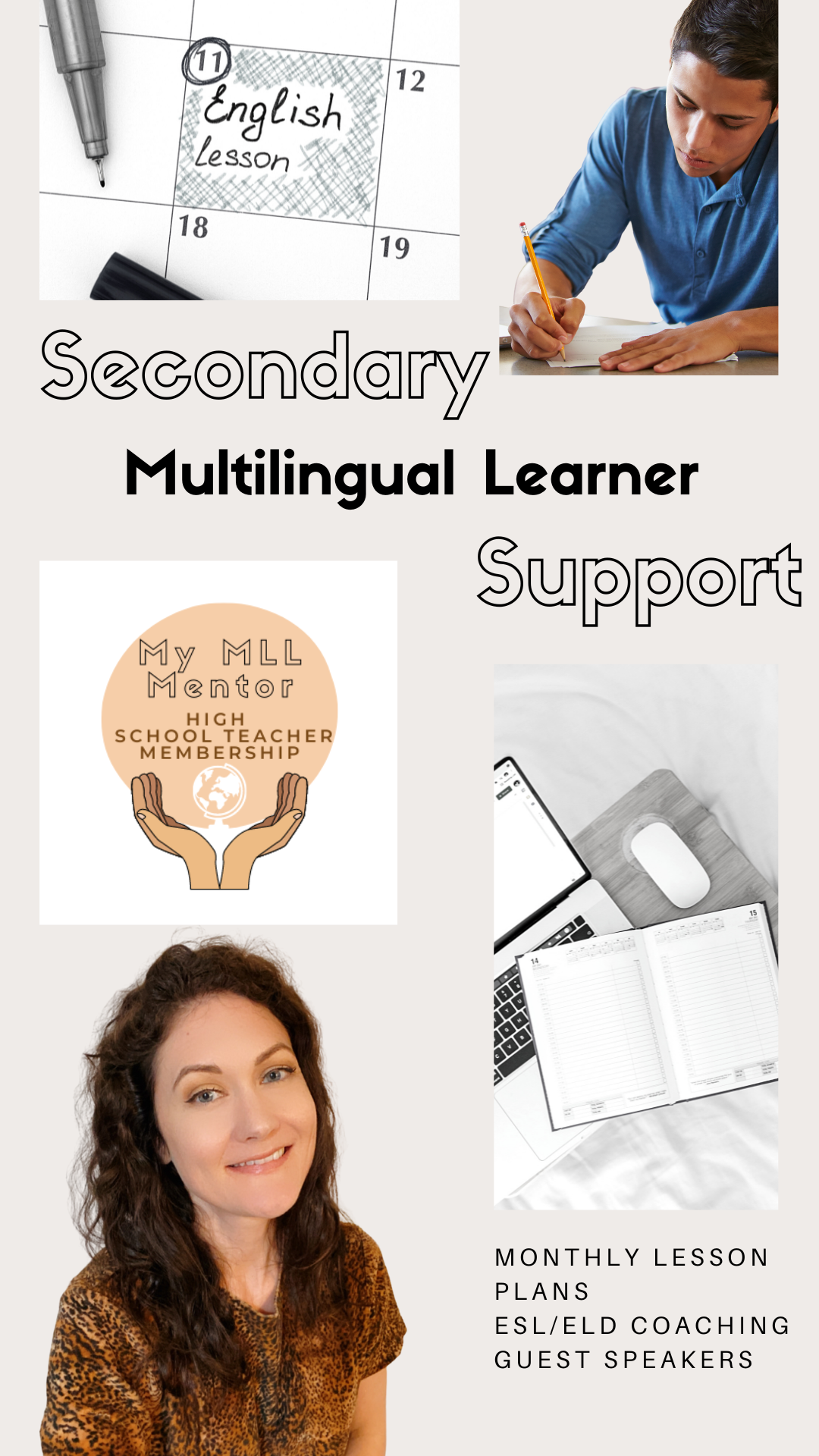|
Setting goals can be a powerful practice for our multilingual learners and English learners. Not only is a great way to monitor ESL student progress, but it is a great way to get students invested in their goals. When we involve students, it gives them more of an incentive to reach those goals. When we just give them goals directly, they may not feel that they are learning for themselves, but just for their teachers. There is no sense of ownership and accountability. Think of it from a child and parent point of view. If I tell my 5 year old (which I do happen to have one;) that I want to set a goal for us to each a vegetable for each meal, she will feel like it is a directive and won't be as likely to eat those vegetables. But if I tell her that if she reaches these goals with me, she will also have more energy to play and it will help her body stay healthy so she can go to gymnastics practice, she has more of an incentive for her goals. Setting language goals can seem daunting, especially if your students are in the entering or emerging range. I made a Language Goals resource and included some scaffolds for each language domain in the entering and emerging proficiency levels. These language goals are based off of WIDA Can-Dos for grades 9-12 high school. Here are some ways to involve students in the language goal setting process for maximum success! Make student goals relevant For our multilingual learners, we have to make it relevant for them! Sure, we want to learn English so that we can get good grades and communicate in society, but try telling that to a middle or high school student who doesn't necessarily care to get good grades. They may care about other things that is more on a career path, not academic path. When you are meeting with your students to set goals, think of things they are particularly interested in. One year, I told one of my students, hey- stick with me and be engaged in class and I bet you that you can be chatting up that cute girl you like in the class next door in no time! True story. Hey- I notice that you have been looking at the flyer for robotics class. We can totally talk to your counselor about that class, but lets make it part of our language goals to develop our speaking practice and academic discourse so you can participate in a range of different conversations in robotics! Create a culture of learning Creating a culture of learning really begins on day one; it's best to start at the beginning of the year. If you didn't get a chance to- maybe you started later in the school year or you were focusing on your classroom management first, it's better late than never! Ways to create this culture are by setting expectations high (yes, even if you have entering and emerging students- just keep them attainable!) and by giving students voice in the classroom. It might mean that everyday in class, students are giving some form of feedback to each other and having collaboration between each other. This can even happen in their first language by embracing a translanguaging stance. Use visuals Make it visual! By making language goals visual, students have their goals always at the forefront. This could be that pages are printed out from their goal sheets and put in the front of their binders, or if you have them doing them digitally, you might have them in an area online that they frequently see. Another way to keep language goals visual is by posting class goals anonymously in the classroom and updating them as they reach these goals. If you are a WIDA state, you may have an interim assessment that you give students throughout the year to monitor progress, and you can update them after they are scored and see who moved up to reach their goals! Teachers could make this a classroom competition between classes at the junior high and high school level. Nothing like a little friendly competition! Getting students involved in setting language goals takes time and routine. Don't get discouraged if students aren't into it at first. As you get to know them better, make it more relevant, and get that competition going, they will see their progress and will continue setting goals with you! Get the Language Goals resource here if you don't have a system in place already! If you do, comment below to tell us more about it! Check out more on language goals in this post here to continue learning!
0 Comments
Leave a Reply. |
AuthorI support middle and high school teachers through monthly lesson plans, coaching, and guest speaker offerings in our Secondary ESL Teacher Membership. Archives
April 2023
Categories
All
|



 RSS Feed
RSS Feed
